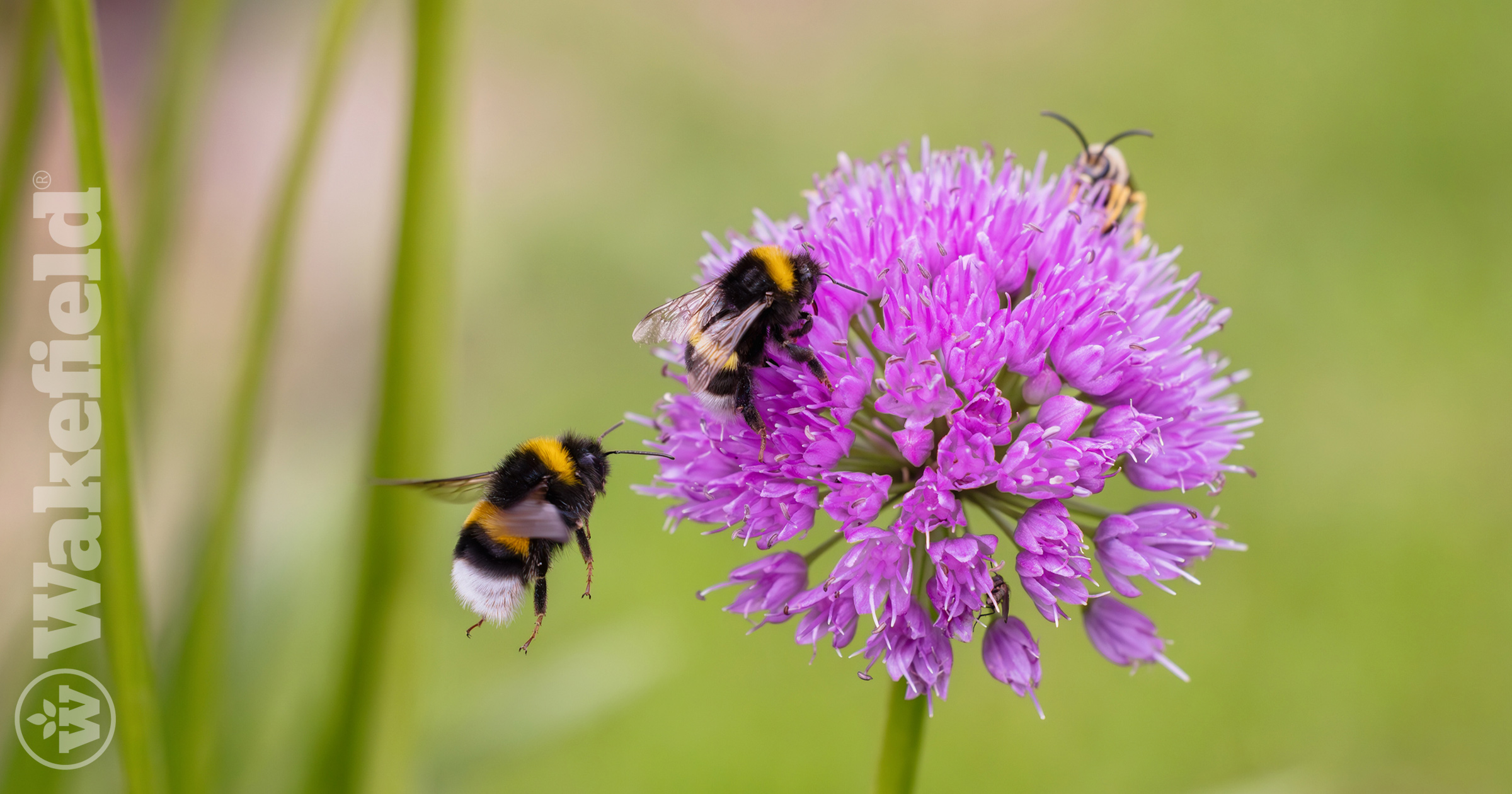Creating a Pollinator Garden with Wakefield BioChar

If you want to transform your garden into a pollinator paradise, we recommend adding a magic ingredient: biochar. This ancient carbon wonder doesn’t just feed plants; it fights climate change, locking carbon away and supercharging your soil. So, it helps create a haven for bees, butterflies, and blooms alike.
Preparing your pollinator garden soil
Starting is simple:
- Mix Wakefield BioChar into your garden soil (try our biochar calculator to see how much you need).
- Then, keep the area moist for about 5 days before planting.
- Finally, plant your pollinators and watch them thrive!
The simple step of adding biochar nourishes the earth and invites a beautiful array of pollinators to your doorstep, turning your garden into a buzzing ecosystem. Not only does biochar boost plant health; it’s a commitment to a greener, more sustainable planet, one garden at a time.
Planting your pollinators
Looking for ideal plants and flowers to populate your pollinator garden? Here are some suggestions (corresponding to the numbers in the featured image above):
- Lavender – Fragrant, purple, a serene magnet for bees and butterflies.
- Salvia – Vibrant spires, irresistible to hummingbirds and bees, drought-tolerant.
- Echinacea (Coneflower) – Bold, nectar-rich, a resilient beacon for bees and butterflies.
- Sunflowers – Sky-high, joyful; bees adore them, birds feast on seeds.
- Foxglove – Majestic bell-shaped flowers, a fairy-tale draw for bees.
- Zinnias – Colorful, easy pollen access, bees and butterflies can’t resist.
- Borage – Striking blue, nectar-packed starflowers, beloved by bees.
- Cosmos – Simple, delicate, breezy; bees and butterflies are frequent visitors.
- Milkweed – Monarch butterfly lifeline, blossoms offer sanctuary.
- Joe-Pye Weed – Lofty, butterfly beacon, majestic presence in any garden.
Start your pollinator garden now!
Why wait? The journey to a lush, pollinator-friendly garden begins with a scoop of biochar. It’s your turn to play a part in this eco-friendly story. So, embrace the shift, enrich your garden, and let’s grow a brighter, blooming future together. Find Wakefield at your trusted retailer now and make your garden the talk of the town for its beauty and its sustainability.





